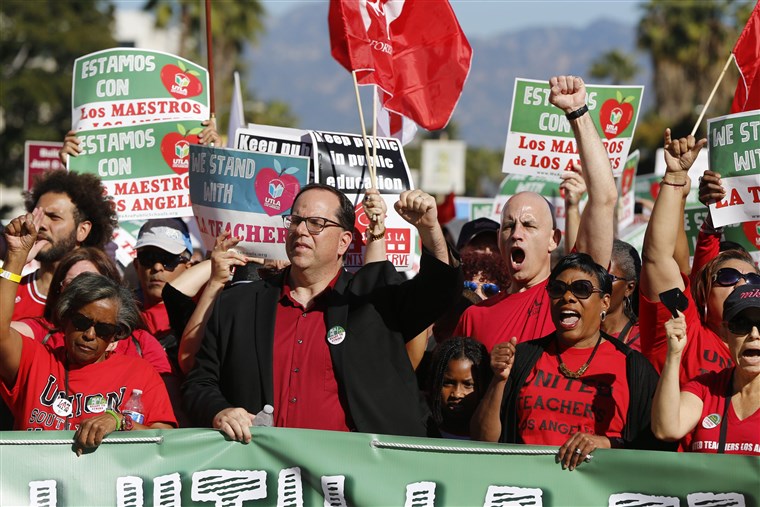The Real Story Behind the L.A. Teachers Strike
Superintendent Austin Beutner and his allies have made it clear they do not believe that the L.A. Unified School District in its current incarnation is worth investing in – or even preserving.
Sometimes strikes are exactly what they seem to be – battles over wages and working conditions, with relatively few implications for anything or anyone else. But sometimes a strike is about something much bigger: a fundamental clash over vision and values, with repercussions that extend far beyond the warring parties. Call it a meta-strike.
If Los Angeles teachers walk off the job January 14, as widely expected, it will be a meta-strike with extremely high stakes not only for teachers, students and parents in L.A., but for public education across the U.S. The stalemated negotiations over wages, class size, staffing and other issues matter – but they are proxies for an epic fight that has been playing out in American school districts for more than a decade.
The head of the country’s second-largest school district is aggressively advancing a controversial blueprint that could make LAUSD almost unrecognizable.
The head of the country’s second-largest school district is aggressively advancing a controversial blueprint that could make LAUSD almost unrecognizable.
On one side of this divide are those who believe that public education as an institution should be preserved more or less in its current form, with a greater infusion of money to address chronic underfunding and understaffing. On the other side is an array of forces that want to radically restructure public schools, and who have made it clear they do not believe that the L.A. Unified School District in its current incarnation is worth investing in – or even preserving.
Austin Beutner, LAUSD’s superintendent, is nothing if not a proponent of radical restructuring. He was appointed to his post not because of his experience in education – he has never held a position in that field – but because he is a fervent advocate of an approach that has its roots in the private sector, where he spent the bulk of his career. Beutner made his considerable fortune in business, starting at the powerhouse private equity firm CONTINUE READING: The Real Story Behind the L.A. Teachers Strike - LA Progressive























